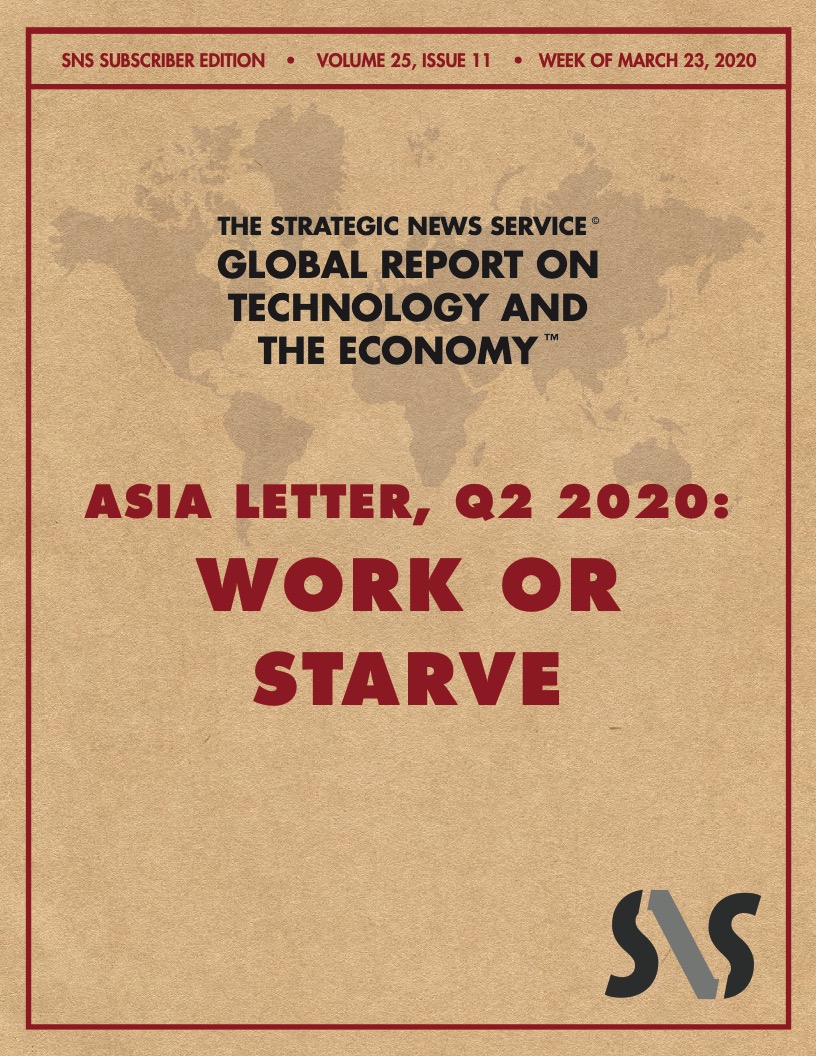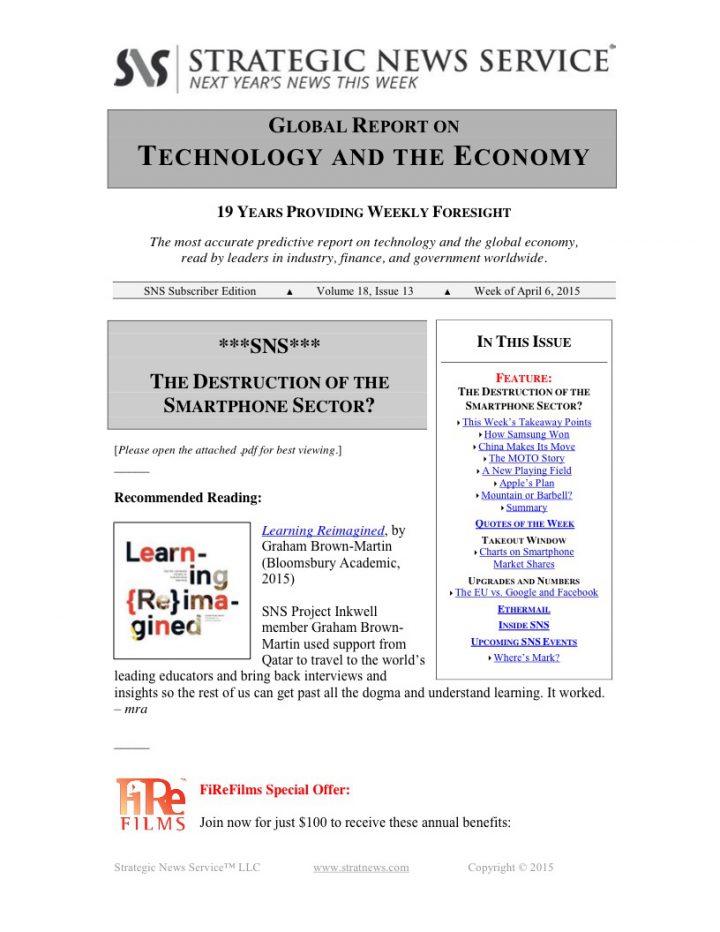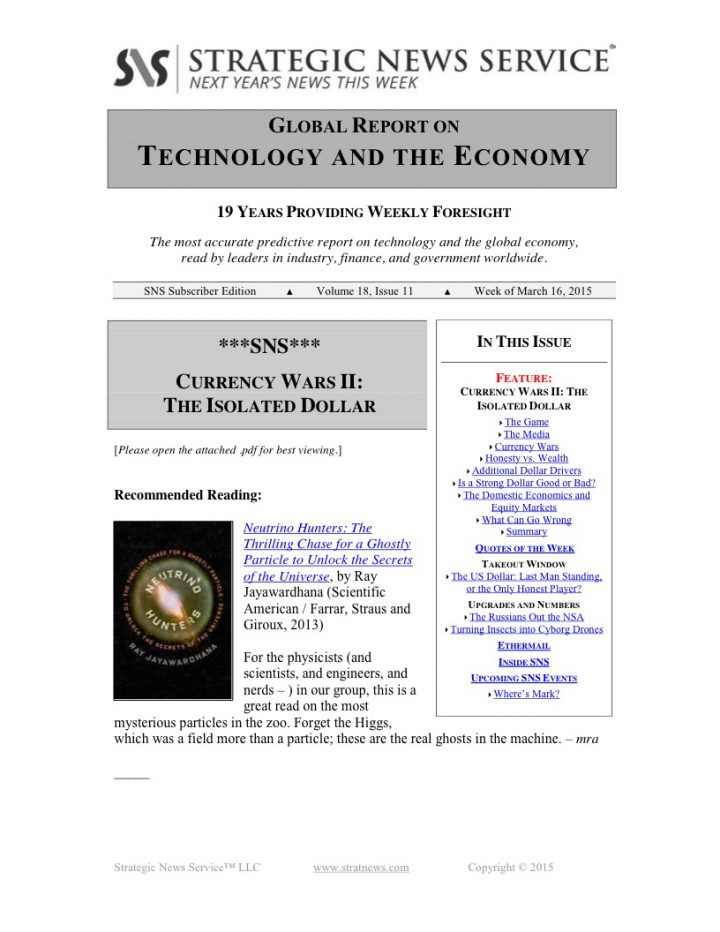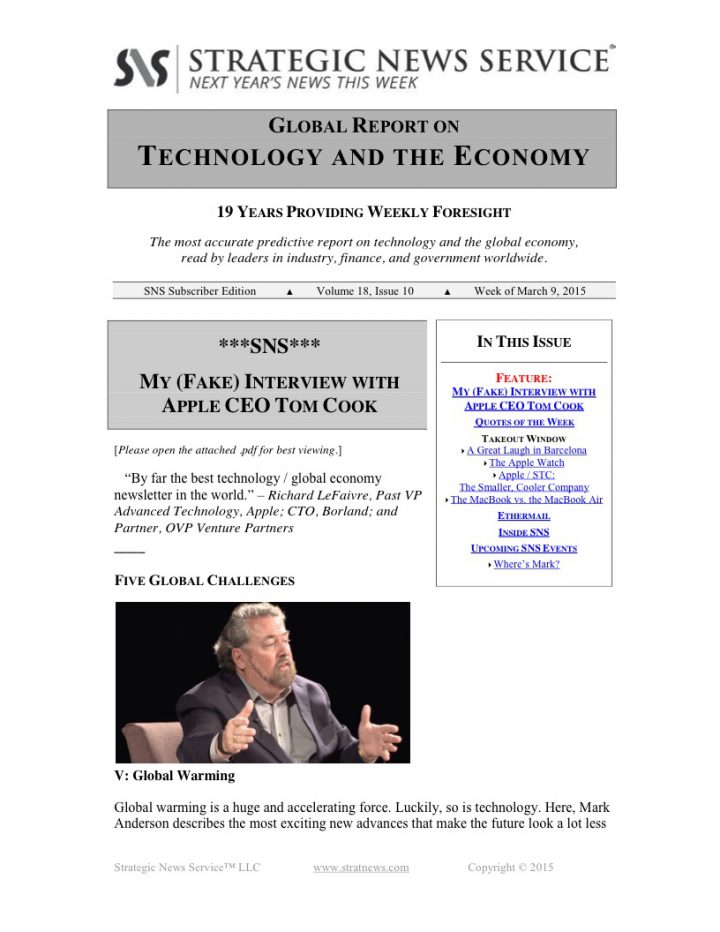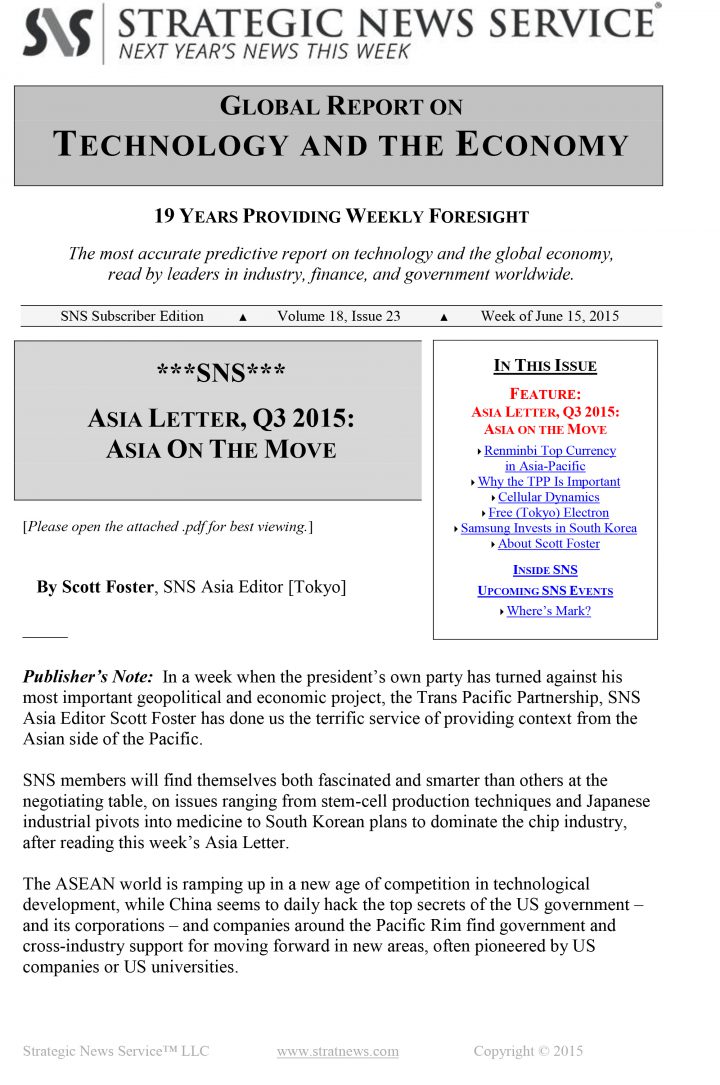In This Issue
Week of 3/23/2020
Vol. 25 Issue 11
Asia Letter: Q2 2020: Work or Starve
- Introduction
- Martian Moon Exploration
- Abe Takes the Long View on 5G
- Fu Ying Pokes at Pelosi
- Singapore Air Force on Guam
- Duterte Abrogates VFA, Trump Saves Money
- Taiwanese Election: Tsai 58%, Democracy 100%
- Prague and Taipei: Sister Cities
- Xi Jinping in Myanmar
- Samsung to Expand Semiconductor Production in China
- US Pressures TSMC
- Indian Electric Vehicles Arrive
- GM Abandons India – and Thailand, and Holden
- Fiat Chrysler to Build EVs with Foxconn
- Geely Joint Venture with Daimler
- Byton Plans Mass Production in 2020
- CATL to Supply Tesla
- About Scott Foster
The Viral Economy, Part 7
—
As COVID-19 dominates the news, many other things are also going on. In the South China Sea, Japan and Vietnam have signed a naval shipbuilding agreement, Australia appears likely to complete a $600 million deal to sell patrol boats to the Philippine Navy, and US-Philippine military cooperation is headed for a big downgrade.
Taiwanese democracy is gaining more support from serious nations, even as it loses diplomatic ties with microstates. The Asian auto industry continues to evolve, the Indians, Chinese, and Germans advancing while the Americans retreat. And the Japanese government has given the go-ahead for a mission to Phobos and Deimos, the two moons of Mars.
In China, Hon Hai Precision Industry (Foxconn) expects its production of iPhones and other products to be back to normal by the end of March, while Chinese cellphone maker OPPO claims to be operating at 80% of capacity now. Chinese factory workers are reportedly going back to their jobs – which makes sense because if they don’t, they won’t get paid and won’t be able to buy food. That is not true just for Chinese.
We will soon know, from customer reports, how quickly manufacturing might recover. But no doubt the trend toward factory automation will accelerate as companies try to eliminate the risk posed by factories jammed with thousands of assembly workers. Meanwhile, the flexible work schedules and telework that are now proliferating in Japan and the rest of Asia are likely to become part of the norm. And the hundreds of thousands of Chinese workers building infrastructure projects along the Belt & Road might suddenly be a lot less welcome.
Additional information
| Topics |
|---|
SKU: SNS-2020-03-26 - Need Help? Contact Us Leave Feedback
Categories: 2020 Issues, Back Issues
Tag: PDF Download

